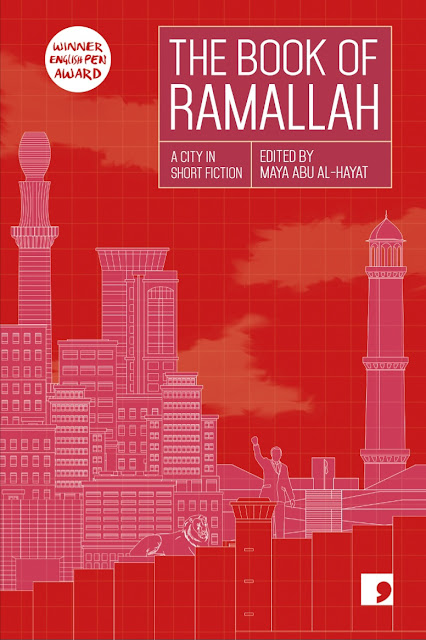The City of Ramallah, population about 70,000, is located in the West Bank area of Palestine, has become a focal point of world wide media attention. This Anthology was published prior to the initiation of the current conflict. In the very informative elegant introduction Maya Abu Al-Hayat tells us the literary history of the city going back to the 16th century up to 2021. She has selected a quite diverse range of stories but each one is informed by the occupation of the city.
Looking back through history, references to Ramallah can be found in records as old as Crusader artefacts. Archaeological evidence suggests there was a village here at least as early as the 16th century, under Ottoman rule, and that it began to thrive towards the end of that era, with the first town council recorded convening in 1908. The name ‘Ramallah’ can be traced back to at least 1186 and is formed from the conjunction of the words raam, meaning hill, and Allah, meaning God.
In Mahmoud Shukeir’s story the protagonist tries to convince himself that he is a man of the city now and that he can do anything that the city’s residents do. Set in the 1960s, when Ramallah was under Jordanian rule but with Israel’s expansionist war drums beating over the horizon, it portrays secret political parties and movements and the first acts of resistance heralded by revolutionary communiqués and protests: a time when identity transcended all.
Mahmoud Shukair was born in Jerusalem in 1941 and is one of the best-known short story writers in the Arab world, and his stories have been translated into numerous languages. His 45 books include nine short story collections and 13 books for children. He has also written extensively for television, theatre, and print and online media. In 2011, he was awarded the Mahmoud Darwish Prize for Freedom of Expression. His 2016 novel Praise for the Women of the Family was nominated for the IPAF. He has previously been the editor-in-chief of the weekly Jerusalem newspaper Al-Taliah.





1 comment:
The fact that the stories in this collection are set in different time periods makes it even more appealing: a mini-history of sorts.
Post a Comment